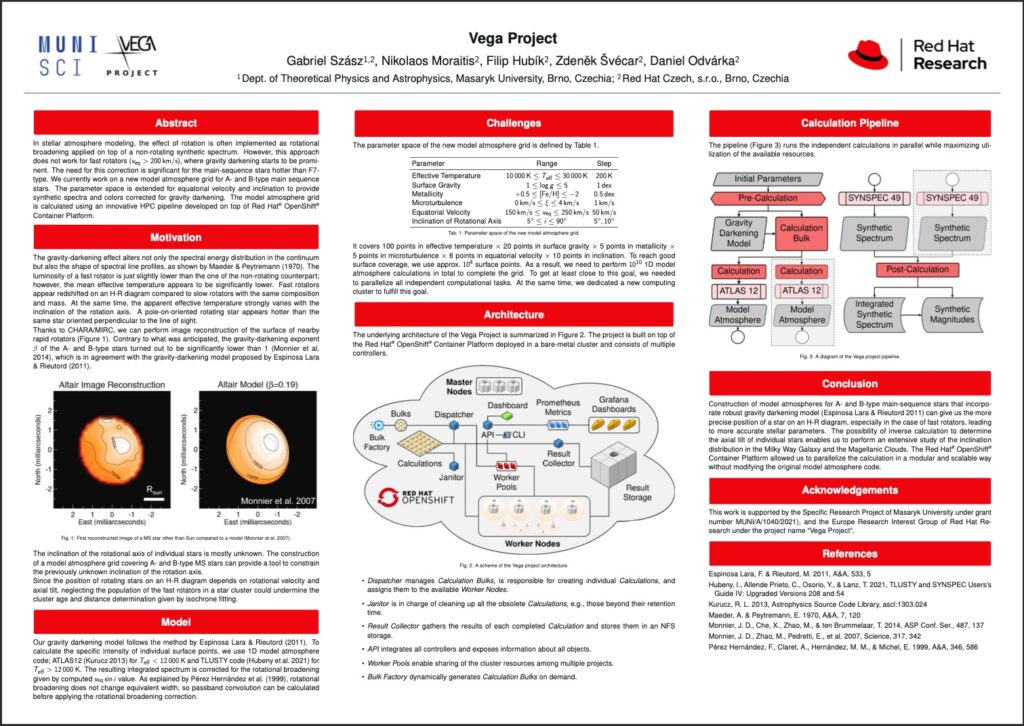Vega Project
Our curiosity constantly pushes technology towards higher goals, unveiling the secrets of distant realms far beyond our imagination. Astrophysicists at the Department of Theoretical Physics and Astrophysics (DTPA) at Faculty of Science, Masaryk University (Brno, Czech Republic) belong to the world-leading experts in stellar astrophysics. In this field, researchers tend to neglect the effects of stellar rotation to avoid the complexity of the problem, claiming these effects are too subtle to play an important role. The research group led by Ernst Paunzen has already collected some intriguing evidence that rotation significantly impacts the parameters and evolution of stars. They just need to prove their findings on a larger scale to convince a broad scientific community. To achieve this goal, DTPA started to build the new model atmosphere grid for the rotating main-sequence stars. In the end, this new model grid will help prove the case, and at the same time, it will give astrophysicists a powerful online tool to study the effects of rotation on the parameters of stars and their evolution. This work has the potential to redefine what we have known about the stars in our local universe.
Calculation of such an extensive model grid is a highly demanding effort that requires high-performance computing to be feasible within a human lifetime. Conventional proprietary HPC solutions turned out to be too inflexible to fit the project requirements. The Vega Project team at Red Hat came up with an idea to harness the power of Kubernetes to provide the next-generation open-source tool for high-performance computing. The project is way past the design phase, and the team is already working on the proof-of-concept implementation using the Red Hat OpenShift Container Platform.
For more information, please refer to the article by the Project Vega team in Red Hat Research Quarterly magazine Volume 1, Issue 4, available here, or see the video from Red Hat Research Day Europe here.
Watch
Project Poster

